Plot
The film is told entirely in retrospect, from a veteran of the American Civil War who may already have been executed. During the war, his job was to play music for a general who decided, in the soldier's words, "where hundreds of men would die." He has come home from the war skeptical about the meaning of life (or that there is a meaning), and trying to search for answers. He attempts to express his thoughts and doubts to his wife Becky, but she remains unconvinced that life is horrible and thinks he is crazy and going to hell. Convinced that people have come to have too much influence over art, he tries to play music not written by people by drawing music lines on his glasses and playing the stars as if they were notes. He also tries to get in touch with God, but, not wanting to be intrusive, he merely hangs about outside the church and whispers through the windows, "God...hey, God...what're you doin'?"
Finally, after many hints, it is revealed why he is sentenced to death: he fought in the war because a rich man paid him to fight in his (the rich man's) place. When the rich man showed up to see how he was fighting, he found the soldier standing and playing the concertina during a battle. The rich man gave him a gun and started yelling at him, so in frustration the soldier shot the rich man instead of the Confederates, picked up the concertina, and left him lying in the field. "He killed the wrong man in the war."
As he is about to be executed, the soldier has an epiphany: "My God...I wasted my whole life thinking about this stuff. I should have just gone fishing! I should have had a sandwich, or had a few laughs! Now I get it!" His illumination is cut off by the firing squad.
He, perhaps in some sort of spirit form, walks through a graveyard and muses, "I'm gonna miss being alive." The credits follow.

All Quiet on the Western Front is a novel by Erich Maria Remarque, a German veteran of World War I. The book describes the German soldiers' extreme physical and mental trauma during the war as well as the detachment from civilian life felt by many upon returning home from the war.

"Yankee Doodle" is a traditional song and nursery rhyme, the early versions of which predate the Seven Years' War and American Revolutionary War. It is often sung patriotically in the United States today. It is the state anthem of Connecticut. Its Roud Folk Song Index number is 4501.

Diomedes or Diomede is a hero in Greek mythology, known for his participation in the Trojan War.
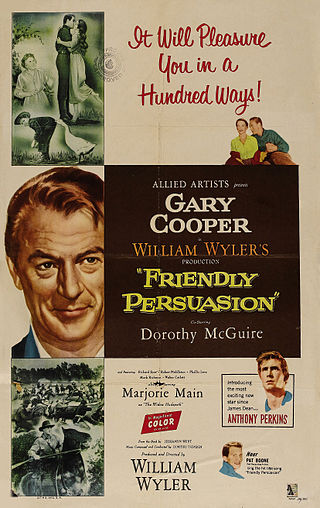
Friendly Persuasion is a 1956 American Civil War drama film produced and directed by William Wyler. It stars Gary Cooper, Dorothy McGuire, Anthony Perkins, Richard Eyer, Robert Middleton, Phyllis Love, Mark Richman, Walter Catlett and Marjorie Main. The screenplay by Michael Wilson was adapted from the 1945 novel The Friendly Persuasion by Jessamyn West. The movie tells the story of a Quaker family in southern Indiana during the American Civil War and the way the war tests their pacifist beliefs.

Monty Python's The Meaning of Life, also known simply as The Meaning of Life, is a 1983 British musical sketch comedy film written and performed by the Monty Python troupe, directed by Terry Jones. The Meaning of Life was the last feature film to star all six Python members before the death of Graham Chapman in 1989.

Troy is a 2004 epic historical war film directed by Wolfgang Petersen and written by David Benioff. Produced by units in Malta, Mexico and Britain's Shepperton Studios, the film features an ensemble cast led by Brad Pitt, Eric Bana, Sean Bean, Brian Cox, Brendan Gleeson and Orlando Bloom. It is loosely based on Homer's Iliad in its narration of the entire story of the decade-long Trojan War—condensed into little more than a couple of weeks, rather than just the quarrel between Achilles and Agamemnon in the ninth year. Achilles leads his Myrmidons along with the rest of the Greek army invading the historical city of Troy, defended by Hector's Trojan army. The end of the film is not taken from the Iliad, but rather from Quintus Smyrnaeus's Posthomerica, as the Iliad concludes with Hector's death and funeral.
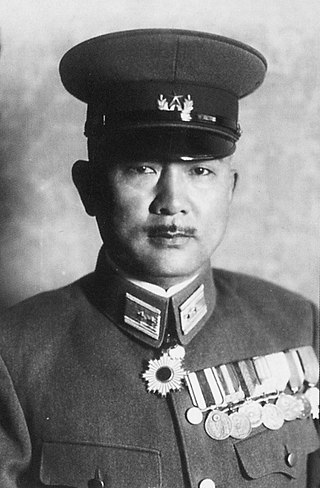
Tadamichi Kuribayashi was a general in the Imperial Japanese Army, part-time writer, haiku poet, diplomat, and commanding officer of the Imperial Japanese Army General Staff. He is best known for having been the commander of the Japanese garrison at the battle of Iwo Jima.
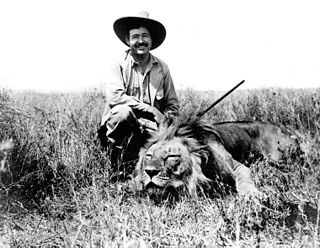
"The Snows of Kilimanjaro" is a short story by American author Ernest Hemingway first published in August 1936, in Esquire magazine. It was republished in The Fifth Column and the First Forty-Nine Stories in 1938, The Snows of Kilimanjaro and Other Stories in 1961, and is included in The Complete Short Stories of Ernest Hemingway: The Finca Vigía Edition (1987).

Hard to Be a God is a 1964 science fiction novel by the Soviet writers Arkady and Boris Strugatsky, set in the Noon Universe.
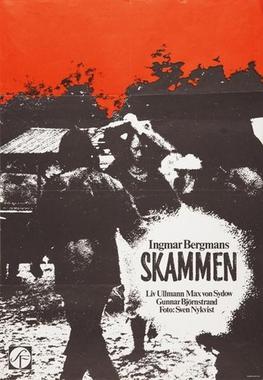
Shame is a 1968 Swedish drama film written and directed by Ingmar Bergman, and starring Liv Ullmann and Max von Sydow. Ullmann and von Sydow play Eva and Jan, former violinists, a politically uninvolved couple whose home comes under threat by civil war. They are accused by one side of sympathy for the enemy, and their marriage deteriorates while the couple flees. The story explores themes of shame, moral decline, self-loathing and violence.

Mard is a 1985 Indian Hindi-language action film, directed by Manmohan Desai. Starring Amitabh Bachchan and Amrita Singh. The movie was remade in Tamil as Maaveeran. Amitabh Bachchan was nominated for Filmfare Award for Best Actor category. Mard was the second highest-grossing film. of the year. and the eighth highest-grossing film of the 1980s. Furthermore, when adjusted for inflation, Mard is one of the highest-grossing films released during the Diwali festival, approximately more than 450cr nett. in today's time.

Dawn is a novel by Elie Wiesel, published in 1961. It is the second in a trilogy — Night, Dawn, and Day — describing Wiesel's experiences and thoughts during and after the Holocaust.
"Son of Man" is a British television play by playwright Dennis Potter which was first broadcast on BBC1 on 16 April 1969, in The Wednesday Play slot. An alternative depiction of the last days of Jesus, Son of Man was directed by Gareth Davies and starred Northern Irish actor Colin Blakely. The play was shot on videotape over three days on a very limited budget: Potter was later to say that the set "looks as though it's trembling and about to fall down."

Private Peaceful is a novel for older children by British author Michael Morpurgo first published in 2003. It is about a fictional young soldier called Thomas "Tommo" Peaceful, who is looking back on his life so far and his going to war. The story focusses on the harsh realities of English rural life and warfare, and highlights the British Army's practice of executing its own soldiers during the First World War. Morpurgo was inspired to write the novel after learning about the around 300 British and Commonwealth soldiers who were shot for crimes like desertion and cowardice. The novel helped further the campaign to grant posthumous pardons to the men, which were agreed and implemented by the UK Government in 2006.
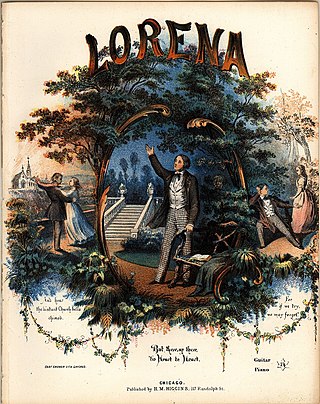
"Lorena" is an American antebellum song with Ohio origins. The lyrics were written in 1856 by Rev. Henry D. L. Webster, after a broken engagement. He wrote a long poem about his fiancée Ella Blocksom, but changed her name at first to "Bertha" and later to "Lorena", perhaps an adaptation of "Lenore" from Edgar Allan Poe's poem "The Raven." Henry Webster's friend Joseph Philbrick Webster wrote the music, and the song was first published in Chicago in 1857. It became a favorite of soldiers of both sides during the American Civil War. Members of the Western Writers of America chose it as one of the Top 100 Western songs of all time.
"God Sees the Truth, But Waits" is a short story by Russian author Leo Tolstoy first published in 1872. The story, about a man sent to prison for a murder he did not commit, takes the form of a parable of forgiveness. English translations were also published under titles "The Confessed Crime", "Exiled to Siberia", and "The Long Exile". The concept of the story of a man wrongfully accused of murder and banished to Siberia also appears in one of Tolstoy's previous works, War and Peace, during a philosophical discussion between two characters who relate the story and argue how the protagonist of their story deals with injustice and fate. Along with his story The Prisoner of the Caucasus, Tolstoy personally considered this work to be his only great artistic achievement.
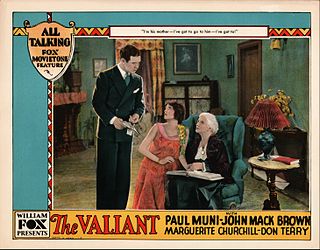
The Valiant is a 1929 American pre-Code drama film released by Fox Film Corporation in the Fox Movietone sound-on-film system on May 19, 1929. It is produced and directed by William K. Howard and stars Paul Muni, Marguerite Churchill, and John Mack Brown. Although described by at least one source as a silent film containing talking sequences, synchronized music, and sound effects, The Valiant has continuous dialogue and is a full "talkie" made without a corresponding silent version.

Dion, tyrant of Syracuse in Magna Graecia, was the son of Hipparinus, and brother-in-law of Dionysius I of Syracuse. A disciple of Plato, he became Dionysius I's most trusted minister and adviser. However, his great wealth, his belief in Platonism and his ambition aroused the suspicions of Dionysius I's son and successor, Dionysius II. An indiscreet letter from Dion to the Carthaginians led to his banishment. Settling in Athens, he lived a prosperous life until Dionysius II dispossessed him of his estates and income. Landing in Sicily in 357 BC, he was successful in conquering Syracuse. However, Dion soon quarrelled with the radical leader Heraclides and was forced into exile. Recalled in 355 BC, he became master of the whole city but alienated the population with his imperious behaviour and financial demands. His supporters abandoned him, and he was assassinated. Dion's attempts to liberate Sicily only brought the island political and social chaos which lasted for nearly 20 years.

The Battle of Cibecue Creek was an engagement of the Apache Wars, fought in August 1881 between the United States and White Mountain Apaches in Arizona, at Cibecue Creek on the Fort Apache Indian Reservation. After an army expedition of scouts, U.S. Army soldiers 'arrested' a prominent Cibecue Apache medicine man named Nock-ay-det-klinne. The U.S. Army soldiers were taking Nock-ay-det-klinne back to the fort when they were ambushed by Apache warriors. During the conflict, the U.S. Army soldiers killed Nock-ay-det-klinne. Most of the 23 Apache scouts mutinied, in the largest such action of its kind in U.S. history. The soldiers retreated to Fort Apache. The following day, the White Mountain Apache mounted a counter-attack. The events sparked general unrest and led to White Mountain Apache warriors leaving the Fort Apache Indian Reservation to join forces with the Apache leader of the Bedonkohe band of Chiricahua Apache named Goyahkla, better known as Geronimo.

Flying Hawk, also known as Moses Flying Hawk, was an Oglala Lakota warrior, historian, educator and philosopher. Flying Hawk's life chronicles the history of the Oglala Lakota people through the 19th and early 20th centuries, as he fought to deflect the worst effects of white rule; educate his people and preserve sacred Oglala Lakota land and heritage.

















